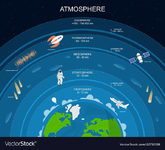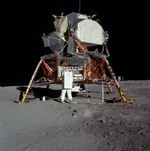Cornelius V.E.
Orthodox
Yes I was watching what happened a few days ago carefully. I observed the one in 2017 as well. This time I wrote down everything that didn't add up, from the path of the penumbra to the way it didn't appear like a normal solar eclipse. I did not see the moon this time, it was allegedly seen in another part of the sky by people in Texas during the eclipse, whilst something the same size of the sun covered the light of the sun. In 2017 I clearly saw the moon before and afterwards. This time there was something strange with it all, from the way people were hyping it up to be some major event beforehand to the manner in which it executed itself across the USA. Not something fearful, just what happened was not what we were told. Also each US state had a different "simulation" of this eclipse which also means it doesn't add up.
Quoting historical astronomical phenomena and describing them is not nonsense. I never said the eclipse "didn't happen," which is nonsense. You have no way of proving that the prediction was accurate based off of reports just as I have no way of proving it was not accurate based off of reports. It is a nebulous contention, and not one I am putting my usual effort in trying to arrive at a truth of, I merely mentioned other things I heard and read from other people about this eclipse, which may all be false just as much as it may be true. Not worth exploring when we do not have the ability to decipher with an exact guarantee.The prediction of the eclipse was accurate down the minute for each part of America, so it is not possible for anything you've said about the moon to be true. If the moon wasn't a solid or if the moon did not orbit the world, then there could not be any eclipse with such accurate predictions. This eclipse was predicted decades ago, and they've already predicted where the next one will be decades from now. It's based on sound principles and works perfectly mathematically.
If you make another nonsense post I'm afraid I'll have to thread ban you out of this for derailing with nonsense.
Solar and lunar eclipses usually recur every six lunar months or, more rarely, every five lunar months. The Chinese, Mayans, Romans, and Babylonians all ended up using the same system of months in their own predictions. It's first formula was the 41-month pattern: 6 + 6 + 6 + 6 + 6 + 6 + 5 = 41 months, or some 3.4 years, after a total or near-total eclipse, an almost identical eclipse occurs, and alternatively the second formula was the 47-month pattern: 6 + 6 + 6 + 6 + 6 + 6 + 6 + 5 = 47 months, or some 3.9 years, after a total or near-total eclipse, an almost identical eclipse occurs.
They had an enormous body of observed phenomena that then enabled them to establish these regularities. Whether or not the moon is a rock or a semi-translucent luminary would not change what has been transpiring since antiquity.

Remember, we're supposed to believe that the batteries used in the extreme temperatures of outer space and the moon were under "insulation," allowing them to operate normally, yet we cannot insulate batteries in fairly mild conditions, by comparison to space, on Earth.
In outer space we've got near absolute zero temperatures, yet on earth the temp drops to -20 and every battery dies immediately. Why can't they just insulate them, brah??? Conversely the radiation of sunlight, which is so powerful and intense it warms our entire Earth, can also be insulated in outer space even though there is zero atmosphere to lessen the radiation effects (which mean small surfaces probably warm up to hundreds if not thousands of degrees).
Thermodynamics is by far the easiest and fastest way to debunk the moon landings.

I'm going to steelman you like Joe Rogan did in the podcast above.And if they can make a battery operate in -271 degrees, why can't they make one operate in -20 F? The entire theory falls apart in a mess of contradictions.
Bart Sibrel appeared on Joe Rogan. I think he did well but also think he could have done better.
If you're going to the moon you're going to solve this problem somehow. Since we went the moon the problem was solved.
NASA themselves say they lost the technology, but this doesn't mean we didn't go to the moon. You are also comparing commercially available batteries for use in cars to space-grade engineered materials. Most EVs do not have to operate in -20 F, and it may not be a requirement that they do.
In the 1920s Hoover vacuums were made and they were amazing. They lasted a lifetime. Actually several. This created a problem: Hoover needs to keep selling vacuum cleaners or they go out of business. So they had to build in planned obsolescence. Since they did this, a vacuum cleaner only lasts 8 years. Hoover stays in business.Space-grade materials are the same materials we use anywhere else on earth. No such thing as "space-grade," all components are made with the same elements found anywhere. Cost isn't a real factor when talking about insulation. The most expensive part of a space outfit is scale, making something in large enough quantity to make such a trip. From fuel to rocket parts, the quantity is the biggest expense, not quality.
I know! I was disappointed in him. I think he didn't expect Rogan to be so insistant on being against him. And sometimes Rogan was right -- Sibrel would make a statement and do a "therefore..." that wasn't a correct conclusion. It was frustrating to hear, given how long Sibrel has been at this.Interesting interview but in 3 hours of discussion, Joe Rogan never mentioned the fact that Sibrel confronted almost all the moon landing astronauts asking them to swear on the bible that they actually walked on the moon. I did want to hear more about that. Sibrel didn't bring it up either.
In the 1920s Hoover vacuums were made and they were amazing. They lasted a lifetime. Actually several. This created a problem: Hoover needs to keep selling vacuum cleaners or they go out of business. So they had to build in planned obsolescence. Since they did this, a vacuum cleaner only lasts 8 years. Hoover stays in business.
In business and even with safety, if water boils at 100 degrees celsius, then there's no reason to make your product go to 200 degrees if all it needs to do is boil water.
So yes, there is a such thing as aerospace-grade materials and engineering. What works on a car does not necessary work on a rocket, and putting rocket technology into cars may make them too expensive to manufacture, calibrate, and maintain.
You can't land on something that's hollow and made of light.
And that's the key point. When someone uses EV batteries in Michigan as an example counterpoint, there's wiggle room for the other side.Even if all of that is true, it wouldn't explain why tech would be lost.
It's hard, and not worth the effort. What would anyone really get out of going to the moon again?And that's the key point. When someone uses EV batteries in Michigan as an example counterpoint, there's wiggle room for the other side.
To me it's the simplest arguments that win. When Columbus sailed the ocean blue in 1492, went back to Spain and told everyone of the New World, can you imagine France, Italy, England et al not going there for 60 years? That's crazy, right?
Then what makes going to the moon different than that? Sibrel goes into theories (China and Russia are blackmailing us) but only provides the smoke, not the fire.
But what's the explanation for why no other countries have sent men? It's hard? Columbus had to sail for weeks -- the moon is just a few days away.
Plan to set a base to launch from there to Mars, to start to colonize it. First country to do so will control its resources.It's hard, and not worth the effort. What would anyone really get out of going to the moon again?
